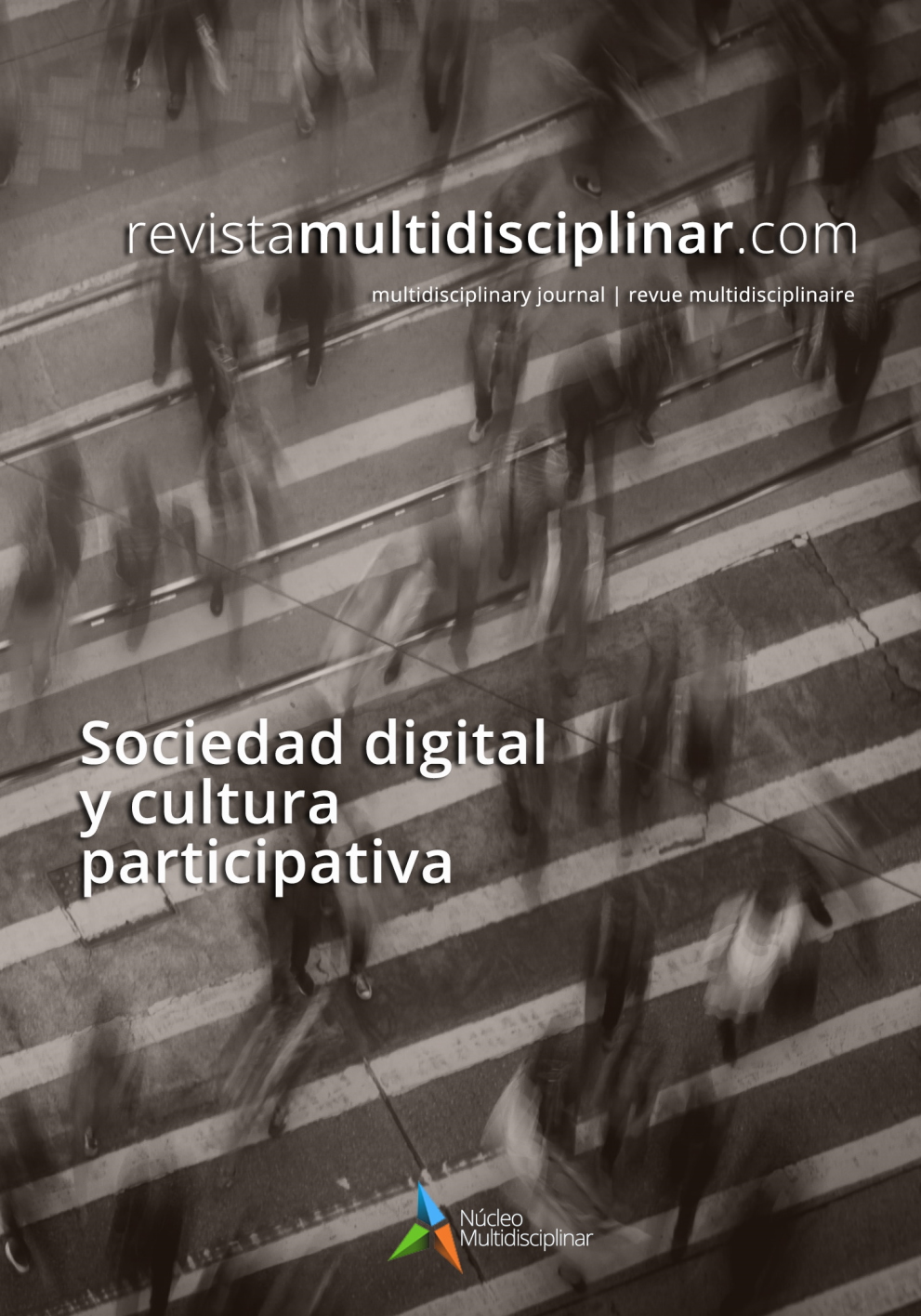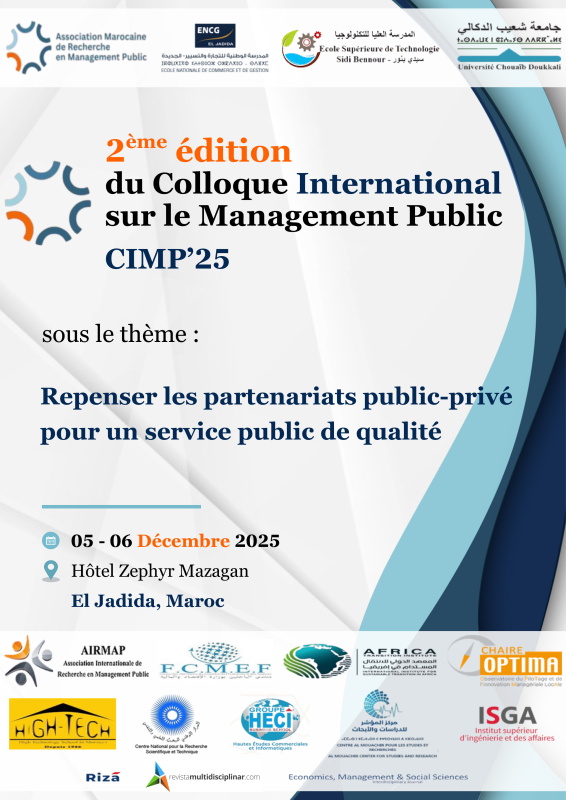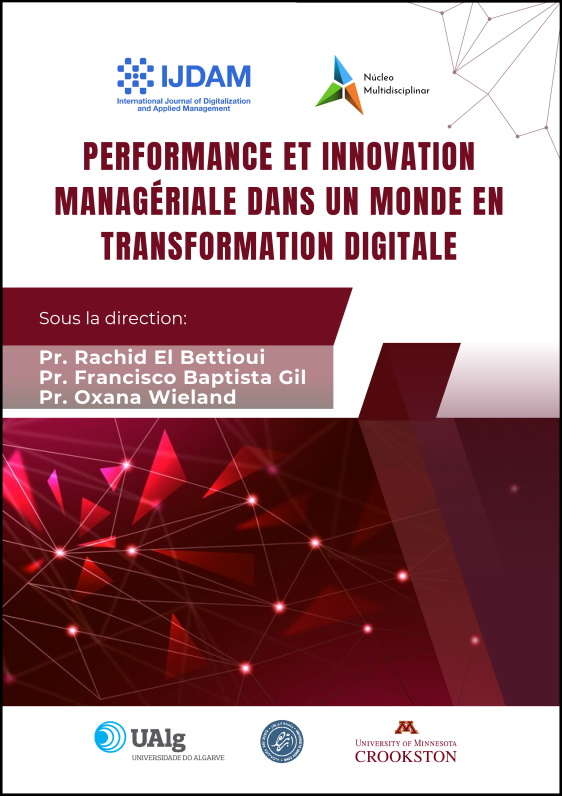O Impacto da pandemia na aprendizagem dos estudantes
Um ensaio sobre o futuro do ensino superior
DOI:
https://doi.org/10.23882/rmd.23143Resumo
A pandemia da COVID-19 forçou uma mudança na aprendizagem remota e presencial da noite para o dia para a maioria dos alunos do ensino superior, a partir da primavera de 2020. Para complementar as videoaulas e envolver os alunos numa sala de aula virtual, os professores adotaram tecnologias que permitiram mais interatividade e modelos híbridos de ensino online e atividades presenciais. Essas ferramentas mudaram a metodologia, o ensino e a avaliação de feições que podem persistir após a pandemia e eventuais epidemias. Para se envolverem de uma forma mais eficaz com os alunos, as instituições de ensino superior terão de se concentrar em oito dimensões da experiência de aprendizagem. Nesta análise descrevemos os resultados de um estudo das tecnologias de aprendizagem que podem possibilitar aspetos de várias dessas oito dimensões da experiência de aprendizagem online. Existe a necessidade urgente de reeducar as próximas gerações de alunos com ferramentas digitais e fazer uso de práticas e competências digitais. A educação em Comportamento Educacional (CE) é difundida em todo o mundo. Existe algum consenso no campo sobre quais os construtos a medir. Foi determinado no estudo a existência de padrões ou princípios seguidos para o esboço da avaliação e atividades presenciais nos vários níveis de ensino. Essas ferramentas mudaram a aprendizagem, o ensino e a avaliação de maneiras que podem persistir após a pandemia. Ter filhos em idade jovem, adolescente e adulta e no ensino deu para constatar o impacto da pandemia na aprendizagem e no bem-estar dos alunos e dos agregados familiares, professores, responsáveis escolares e comunidades académicas inteiras. Estudantes de todo o mundo estão, em média, oito meses atrasados em relação ao que estariam se não fosse a pandemia. Até 2040, os alunos com o curso superior inacabado devido ao COVID-19 podem custar à economia global US$ 1,6 trilião. Então, qual é o caminho a seguir para os sistemas escolares?
Referências
Banco Mundial (2021). How to Enhance Teacher Professional Development Through Technology: Takeaways from Innovations Across the Globe. https://bit.ly/3LRffdm.
Banco Mundial (2020). Inclusive Education Resource Guide: Ensuring Inclusion and Equity in Education. https://bit.ly/3z4zEE1.
Banco Mundial (2018). Global Disability Summit (GSD), July. https://bit.ly/42EpSpF
Barbetta, P., & Morales, M. (2022). Three Low-Tech Active Student Responding Strategies for Inclusive Online Teaching. Teaching Exceptional Children, Vol. 54, No. 5, May/June, pp. 346–353. Department of Teaching and Learning. Florida International University. Sage Publications Inc. https://bit.ly/40bZYbp.
Bartz D. (2023, February 13). As ChatGPT’s popularity explodes, U.S. lawmakers take an interest. http://bit.ly/3KaPGT2.
Benedicks, R. (2022). The 5-Stage Model for Hybrid Learning: What It Is, How It Works, and Why We Need It. LEO-Learning, Learning Technologies Group. https://bit.ly/3TJb19n.
Black, S., Denning, J., & Rothstein, J. (2023). Winners and Losers? The Effect of Gaining and Losing Access to Selective Colleges on Education and Labor Market Outcomes. American Economic Journal: Applied Economics, 15(1): 26–67. https://bit.ly/3z6MbHc.
Brasca, C., Krishnan, C., Marya; V., Owen, K., Sirois, J., & Ziade, S. (2022). How technology is shaping learning in higher education. McKinsey & Company, June, McKinsey’s Education Practice. https://mck.co/3lFHUas.
Bryant, J., Child, F., Espinosa, J., Dorn, E., Hall, S., Schmautzer, D., Kola-Oyeneyin, T., Lim, C., Panier, F., Sarakatsannis, J., & Ungur, S. (2022). How COVID-19 caused a global learning crisis. McKinsey & Company. https://mck.co/3K6yKgI.
Cache, C. (2020). The Impact of Artificial Intelligence on Education. Forbes. https://bit.ly/3nlxq0e.
Cain, M., Campbell, C., & Coleman, K. (2022). ‘Kindness and empathy beyond all else’: Challenges to professional identities of Higher Education teachers during COVID‑19 times. The Australian Educational Researcher. Springer. https://bit.ly/3niavDf.
Campbell, J. (2021). Metaverse. Salem Press Encyclopedia. https://bit.ly/40ta1Z2.
Carey, A., & Baker, J. (2021). Victorian students top NAPLAN results despite months of remote learning. The Age. Victorian students top NAPLAN results despite months of remote learning.
Castro, P, Rodrigues, J., & Teixeira, J. (2020). Understanding FinTech Ecosystem Evolution Through Service Innovation and Socio-technical System Perspective. International Conference on Exploring Services Science. Part of the Lecture Notes in Business Information Processing book series (LNBIP, volume 377). Portugal Fintech Report.
Clark, D. (2020). Artificial Intelligence for Learning: How to Use AI to Support Employee Development. eBook. Publisher: Kogan Page Limited, United Kingdom and United States.
Clay, K, Chad, Abdelwahab, M., Bagwell, S., Barney, B., Burkle, E., Hawley, T., Rowden, T., LaVelle, M., Parker, A., & Rains, M. (2022). The effect of the COVID-19 pandemic on human rights practices: Findings from the Human Rights Measurement Initiative’s 2021 Practitioner Survey. Journal of Human Rights, Vol. 21, No. 3, 317–333. https://bit.ly/40ushkY.
Conselho Nacional de Educação (2021). Efeitos da pandemia COVID-19 na educação: Desigualdades e medidas de equidade, Estudos, Estudo solicitado pela Assembleia da República através da Deliberação nº 1-PL/2021, de 12 de maio, publicada em Diário da Assembleia da República, II Série-A, nº 131, ISBN: 978-989-8841-38-4. https://bit.ly/3JLAs5s.
Costello, E. (2023). ChatGPT and the Educational AI Chatter: Full of Bullshit or Trying to Tell Us Something? Postdigital Science and Education, 1-6; Springer International Publishing.
Dean, M. (2020). What are some barriers to technology integration in education? https://bit.ly/3TGKBoF.
Federal Student Aid (2023). Federal Pell Grants are usually awarded only to undergraduate students. Office of the U.S. Department of Education. https://bit.ly/3FOukbE.
Fischer, I.D., & Yang, J.C. (2022). Flipping the flipped class: using online collaboration to enhance EFL students’ oral learning skills. International Journal of Educational Technology in Higher Education, 19, Article number: 15. Springer. https://bit.ly/42Bhebx.
Gentile, J. R. (2023). Teaching methods. Salem Press Encyclopedia of Health. Grey House Publishing. New York.
Gonzales, J. (2022). Biden’s student loan forgiveness plan promises ‘targeted relief.’ Are you eligible? Chalkbeat, Essential education reporting across America. August. https://bit.ly/3TJc5Kp.
Hachman, M. (2023). ChatGPT is the dazzling, scary future of AI chatbots. PCWorld, January, Vol. 41, Issue 1, p20-24.
Hallin, E., Danielsson, H., Nordström, T., & Fälth, L. (2022). No learning loss in Sweden during the pandemic: Evidence from primary school reading assessments. International Journal of Educational Research, Volume 114, 102011, Published by Elsevier Ltd. https://bit.ly/3TEl9Ak.
Holmes, W., & Tuomi, I. (2022). State of the art and practice in AI in education. European Journal of Education, 57(4), 542-570. https://bit.ly/3JH16MT.
Homolak, J. (2023). Opportunities and risks of ChatGPT in medicine, science, and academic publishing: a modern Promethean dilemma. Croatian Medical Journal, Feb, Vol. 64, Issue 1, p1-3.
Huang, P., Wright, A., & Middleton, S. (2022). How Material Objects Shape Student Team Learning Process. Academy of Management Learning & Education, Vol. 21, No. 1, 35–60. https://bit.ly/42BhFTd.
Human Rights Watch (HRW, 2021). The effect of the COVID-19 pandemic on human rights practices: Findings from the Human Rights Measurement Initiative’s 2021 Practitioner Survey.
Hutchings, M, McLarnon, N., McDermott, J., Watson, A., Power, A., Anderson, E., & Owens, M. (2022). Practice-based learning and the impacts of COVID-19: doing it for real? British Journal of Midwifery, June, Vol 30, No 6. Mark Allen Publishing Ltd.
Jiongjiong, F. (2023). Theory and method for evaluating the importance of college course teaching for future education: From virtual reality to metaverse. Journal of Intelligent & Fuzzy Systems. Jan, p1-27. DOI 10.3233/jifs-220931.
Junior, S., & Luciano, E. (2016). Teoria da Perspectiva e os Riscos Envolvidos no Processo de Tomada de Decisão: Análise de Conteúdo em Artigos do ProQuest. Future Studies Research Journal, Vol.8, nº1, pp. 60 – 89, ISSN 2175-5825.
LaFortune, J., & Schonholzer, D, (2022). The Impact of School Facility Investments on Students and Homeowners: Evidence from Los Angeles. American Economic Journal: Applied Economics, 14(3): 254-289. https//bit.ly/3z5o0he.
LEO Learning (2022-a). Preparing for the Future of Workplace Learning: 7 Challenges and Innovations for Changing Times. https://bit.ly/40dmoJj.
LEO Learning (2022-b). Preparing for the Future of Workplace Learning: 7 Challenges and Innovations for Changing Times. https://bit.ly/3K5vOAV.
Lieu, T. (2023). I’m a Congressman Who Codes. A.I. Freaks Me Out. The New York Times, 23 de Janeiro. https://nyti.ms/3TDOr25.
Liu, J., Watabe, Y., & Goto, T. (2022). Integrating sustainability themes for enhancing interdisciplinarity: a case study of a comprehensive research university in Japan. Asia Pacifc Education Review 23, 695–710. https://bit.ly/3TJ0xa7.
Mejía-Manzano, L., Sirkis, G., Rojas, J., Gallardo, K., Vázquez-Villegas, P., Camacho-Zuñiga, C., Membrillo-Hernández, J., & Caratozzolo, P. (2022). Embracing Thinking Diversity in Higher Education to Achieve a Lifelong Learning Culture. Educational Sciences, 12, 913. https://bit.ly/3lD0nEv.
Moreira, J., Martineli, T., Silva, R., & Vasconcelos, C. (2020). Banco Mundial e as Recomendações Atuais para as Políticas Educacionais no Brasil. FINEDUCA – Revista de Financiamento da Educação, Volume 10, n. 14. https://bit.ly/3FPOMJ5.
Mayne, Q., & Peters, Y. (2023). Where you sit is where you stand: education-based descriptive representation and perceptions of democratic quality. West European Politics, Vol. 46, Nº. 3, 526–549. https://bit.ly/3JJNv7v.
Olhar Digital (2019). 10 melhores exemplos de uso de inteligência artificial. Dezembro. https://bit.ly/3K6AlmI.
Omar, H. (2022). Industry-University Partnerships to Create AI Universities: A Model to Spur US Innovation and Competitiveness in AI. Center for Data Innovation. Information Technology & Innovation Foundation. https://bit.ly/40fxE7N.
OpenAI (2023). https://bit.ly/3z1oxf8 (consultado em 23 de março de 2023).
Organização para O Desenvolvimento Económico e Social (OECD, 2015). Portugal Fintech Report (2020). https://bit.ly/42ANXxE.
Programa Internacional de Avaliação de Alunos (2017). https://bit.ly/40CMXHD.
Portugal Fintech Report 2022. https://bit.ly/3LLeX7L.
Reedy, D. (2020). Teaching Research Methodology: Everything's a Case. Electronic Journal of Business Research Methods, Vol. 18 Issue 2, p178-188.
Sayed, W., Noeman, A., Abdellatif, A., Abdelrazek, M, Badawy, M., Hamed, A., & El-Tantawy, S. (2023). AI-based adaptive personalized content presentation and exercises navigation for an effective and engaging E-learning platform. Multimedia Tools and Applications, 82:3303–3333. Springer. https://bit.ly/3K6BeM4.
Sizov, V., Slavska, Y., & Alforov, O. (2022). Professional Worldview as a Determinant of The Slavic Cultural Archetype and Its Transformation in Pedagogical Forms. Journal of History Culture and Art Research, 11(1), 13-26.
Thelin, J. (2022). American Higher Education: Issues and Institutions. eBook, Routledge. https://bit.ly/3TK4wDu.
Wahyuningsih, S., Nurjanah, N., Rasmani, U., Hafidah, R., Pudyaningtyas, A., & Syamsuddin, M. (2020). STEAM Learning in Early Childhood Education: A Literature Review. International Journal of Pedagogy and Teacher Education, Vol. 4, Nº 1, p33-44. https://bit.ly/40g6Zrs.
Wilichowski, T., Cobo, C., Patil, A., & Quota, M. (2021). How to Enhance Teacher Professional Development Through Technology: Takeaways from Innovations Across the Globe. Banco Mundial. https://bit.ly/3FRrnHf.
World Economic Forum (2022). Here's how COVID-19 affected education – and how we can get children’s learning back on track. 14th November. https://bit.ly/40An638.
UNESCO (2020). Global Education Monitoring Report Team. Global education monitoring report, 2020: Inclusion and education: all means all. Third edition, Published in 2020 by the United Nations, Educational, Scientific and Cultural Organization, Paris. https://bit.ly/3K2gbtT.
Wildman, J. (2021). COVID‑19 and income inequality in OECD countries. The European Journal of Health Economics 22:455–462. https://bit.ly/3K58iDX.
Wong, J., Bui, N., & Hughes, B., (2022): A Learning Experience Design Approach to Online Professional Development for Teaching Science through the Arts: Evaluation of Teacher Content Knowledge, Self-Efficacy and STEAM Perceptions, Journal of Science Teacher Education, https://bit.ly/3lyqVqJ.
Yang, Z., Zhang, L, & Li, T. (2022). A novel group decision making method for interval-valued pythagorean fuzzy preference relations. Journal of Intelligent & Fuzzy Systems, 42, pp. 1655–1677. https://bit.ly/40t8nGW.
Zhou, J., Ke; P., Qiu, X., Huang, M., & Zhang, J. (2023). ChatGPT: potential, prospects, and limitations. Frontiers of Information Technology & Electronic Engineering. p1-6. Zhejiang University Press.
Publicado
Como Citar
Edição
Secção
Licença
Direitos de Autor (c) 2023 Antonio Duarte Santos

Este trabalho encontra-se publicado com a Creative Commons Atribuição-NãoComercial 4.0.








